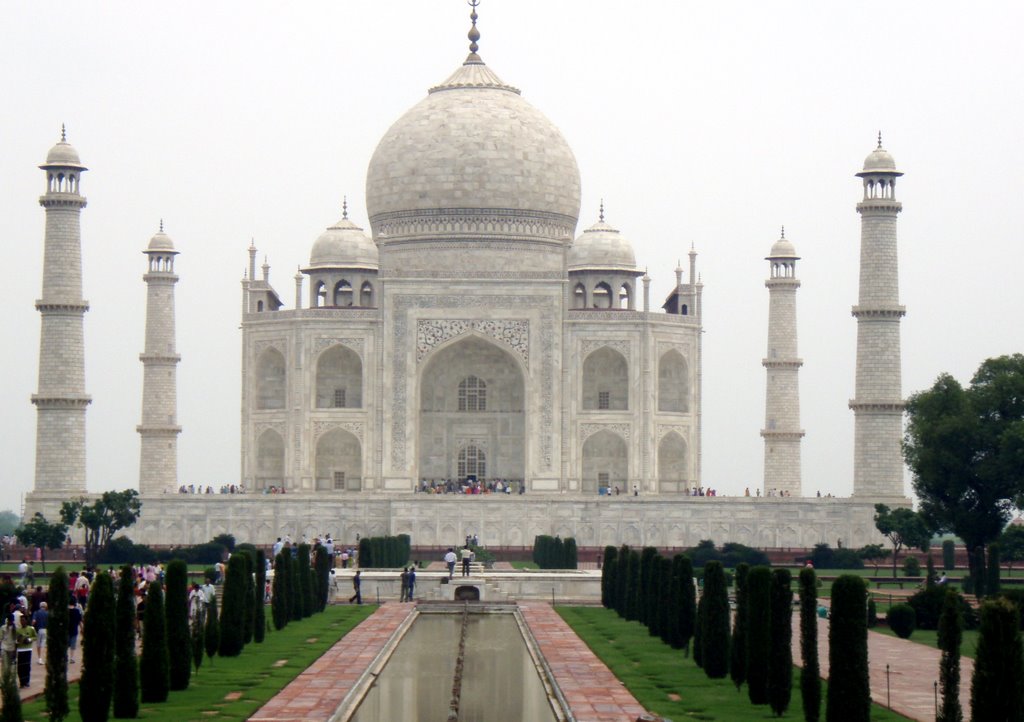Some Musings on Water
July 2, 2007
I've been thinking about possible solutions to many of the public health problems that I witnessed in India. Foremost on my mind of course are poverty, overpopulation, water and sanitation, women's rights and of course the emerging epidemic of HIV/AIDS. These are major challenges and require multi-sectoral and creative solutions in a political atmosphere that is not always supportive of public health.
Let's take water and sanitation for example. Water management and sanitation are crucial public health issues for India, as they are for most developing countries that lack strong public infrastructure. There is tremendous unplanned growth in Indian cities as millions migrate from the villages in search of better economic prospects often leading to overcrowded slums and horrid living conditions. Therefore, India has an urgent need for investment in its water and sanitation infrastructure and public-private partnerships have previously proven to offer real solutions by bringing in financing, technical expertise, and expedited project implementation. According to the WHO estimates, every U.S. dollar invested in water and sanitation yields economic returns of $3 to $34 and has other more important benefits such as improved quality of life, reduced morbidity and mortality from waterborne disease, especially for children, and is real progress toward reaching the Millennium Development Goals (Mulford).
We've talked about water and sanitation issues in Dr. Shahi's class (Emerging Trends in Global Health) and the privatization of water was always a controversial topic. Yet today in India, most water and sanitation systems are managed by the public sector and most fail to deliver the promised water and the tank drivers and numerous other bureaucrats have to be constantly bribed to do the job that they're supposed to be doing. Most water and sanitation systems in India lack the capacity for effective water management and often lose nearly 50% of their water due to leaky pipers and illegal tapping of water pipes. Partnerships with the private sector based on performance based contracts would increase the efficiency, bring in much needed finance and accountability but must be transparent and have effective governance and social consciousness would be a huge plus. Moreover, to further strengthen its public health infrastructure, India must strengthen its legal and regulatory standards to support such public-private partnerships. 
Public Health Message on Water Use
On the flip side of the tortilla, most of the U.S. is experiencing droughts this year with the Western states leading the way, California has only received 3.6 inches of rain in the past year and faces a tough fire season because of the dryness. And most of the seeds my granny and I planted, with the exception of the tomatoes (well she did most of the planting really) have not even sprouted. On a larger scale farmers nationwide are forecasting a reduced harvest and loss of entire crops (NPR).
On a more positive note, however, more and more people are becoming aware of the need to live a more responsible and sustainable lifestyle in this country thanks to documentary films like The Inconvenient Truth and there has been a considerable shift of opinion on whether global warming is actually occurring. This I believe is a major step forward for this country given the fact that up until just recently our President was denying the fact that the climate is indeed changing.
My evidence for this increased awareness is anecdotal of course. I have not conducted any surveys, it is merely based on my observations of more coverage of environmental issues in the media, more dialogue in the country, and perhaps my own increasingly raised awareness of the issue. Yet, we still take the most precious natural resource for granted and I believe that there's a much needed effort to get people to use water more judiciously and efficiently before we are forced to contend with increased prices, rationing, and forced conservation. But how do we change patterns of behavior in an entire nation, nay the world, if it is so difficult to change our own personal patterns of behavior.
So while I saw slum after slum in Delhi where people live in makeshift homes and lack access to basic services like water and sanitation, I am now contending with the fact that I live in a country which consumes its rich resources and that of the rest of the world without any regard to sustainability. It's time for a paradigm shift and it starts with you and me.
References: D.C. Mulford


No comments:
Post a Comment